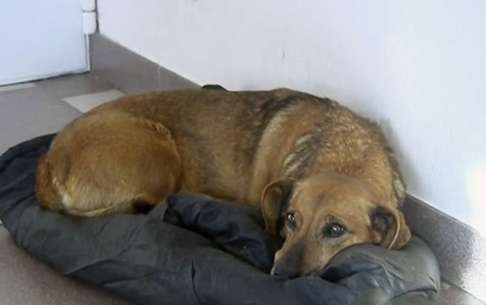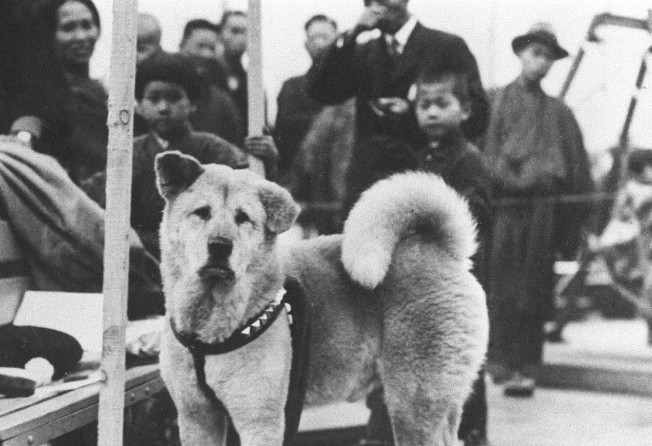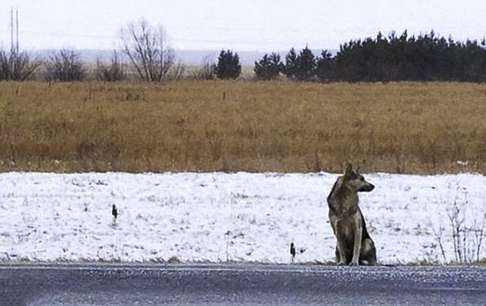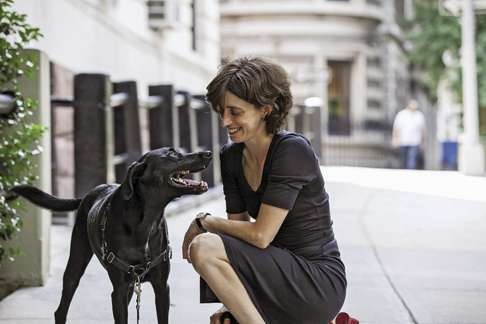
Will my dog really be sad when I die? Science can’t answer that question ... yet
Stories of dogs mourning the deaths of owners often go viral – but how true are they? Dogs probably don’t think about death and mortality the way we do, and may be acting out of habit, experts say

Bear had sat in the same spot of her Baltimore home for three days, maybe more – without food, water or even a toilet break, according to the animal shelter that later took her in. A 12-year-old mutt with a greying muzzle, the dog was found “lying loyally” by her deceased owner’s side in early June, the shelter said on Facebook, “just quietly mourning.”
Bear’s tale, which ended happily with the dog’s adoption, was only the latest iteration of a story that has long captured imaginations: the grieving, loyal dog waiting in vain for its dead – or fled – owner.

In March this year, reports circulated about another Russian dog that had stayed for a year at the spot where his owner had died in a car crash; he became known as the “Siberian Hachiko”. In April, an “Ecuadorian Hachiko” emerged, in the form of a dog that would not leave the earthquake-ruined home where its owner had perished.
So reliable are the stories that they have been parodied by the satirical news site Clickhole, which in 2014 produced a video that suggested dogs in these situations might actually be more self-interested than sorrowful. It was headlined: “This loyal dog refuses to leave a grave that has peanut butter on it”.
In an increasingly pet-loving world, the idea of a dog grieving for its master is no doubt an appealing one. But while we hate to break it to you, there’s not a lot of science to back it up – not yet, at least. Whether and how animals mourn is a nascent field of study, and there’s growing evidence that elephants, primates and cetaceans such as dolphins do it, said anthropologist Barbara King, author of How Animals Grieve. But there’s no scientific literature on dog grief yet, she said.
Alexandra Horowitz, a psychologist who heads the canine cognition lab at Barnard College in New York, said she doesn’t rule out the idea that dogs grieve. But she interprets the Hachiko-like stories less as evidence of dog mourning than our desire to view animal actions through a human lens, rather than considering the world from a dog’s point of view.

“We can think about death and our own mortality and know that if we lose somebody, we’re never going to see them again. I’m not sure dogs have that conception. And if they don’t, their grief might be subjectively different than ours,” she said.

King said she thinks there’s no question dogs are capable of grief, and she dismissed the idea that it is anthropomorphic. But accurately identifying it would require more than a photo or video or news account, she said: It would depend on observations of a dog before, during and after a death and signs of “specific externally expressed behaviour around a body or just after a death.” That might be lethargy or withdrawal, she said.
“There’s often a media leap over those first two levels, to claim grief too readily. How do we know that a dog is experiencing grief as opposed to experiencing some sense of absence?” she asked. “It’s not anthropomorphic to use these terms, but let’s be conservative and not slap grief onto everything that is actually stress-related.”

Clive Wynne, a psychology professor and director of the Canine Science Collaboratory at Arizona State University, said it is “undeniable” that dogs can have deep bonds with people and “suffer emotional pain”.
We’re never happy. We have to add layers of embellishment on top. Like the idea that if you drop dead, your dog will come to your grave for the rest of your life.
What’s not clear is how long it lasts, he said, though he doubts it is for years. He pointed to the case of Greyfriars Bobby, a 19th-century terrier that gained fame for keeping vigil by his Scottish owner’s grave for 14 years. That story was later debunked, or at least deflated, in books that questioned its accuracy. According to those, the dog stuck around the cemetery because it was being fed by visitors and workers.
“With dogs, you have this tremendous, heart-warming seeking of proximity and attention, and offers of affection,” he said. “But then we human beings, we’re never happy. We have to add layers of embellishment on top. Like the idea that if you drop dead, your dog will come to your grave for the rest of your life.”
One delightful thing about dogs, Wynne argued, is that they readily form new bonds – animal rescue organisations couldn’t be successful if dogs forever wallowed in their sadness, after all. His own dog, Wynne said, could quickly be rehomed if he died, while “all the evidence is that my son would be scarred for life”.
“That is what human bonding is like, and it’s different from dog bonding,” he said. “It’s not better. It’s just different.”
The Washington Post